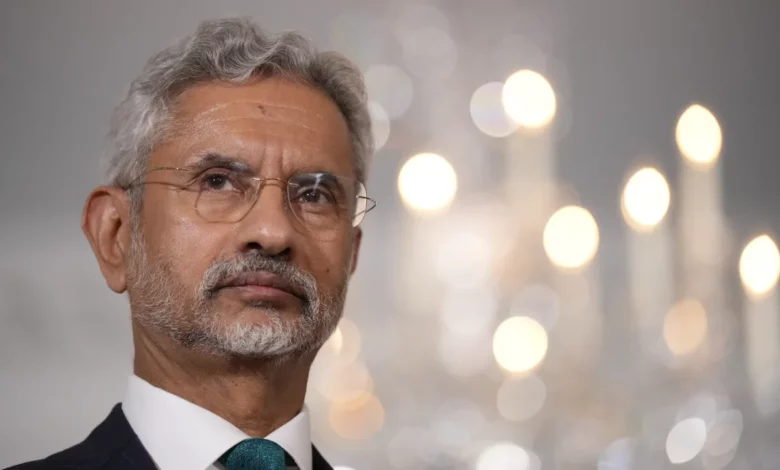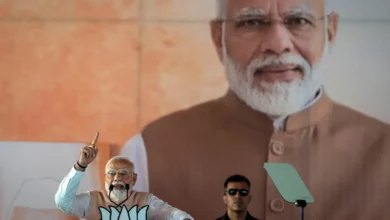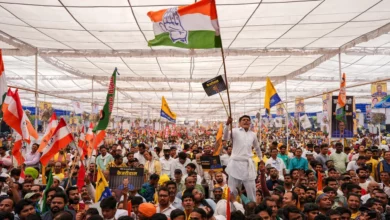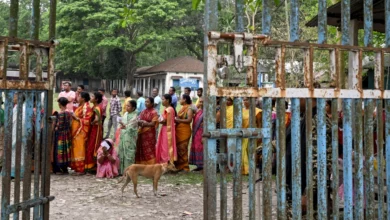
“The Canadian (prime minister) made some allegations initially privately, and then publicly. And, our response to him, both in private and public, was that what he was alleging was not consistent with our policy,” India’s Minister of External Affairs Subrahmanyam Jaishankar said during a discussion at the Hudson Institute in Washington D.C. on Friday.
The minister said India was “open to” further examine the event if the Canadian government “had anything relevant and specific they would like us to look into,” but added that the row between the countries preceded Trudeau’s allegations.
Relations between the two nations took a nosedive last week after Trudeau claimed his authorities had been investigating “credible allegations” of a potential link between “agents of the government of India” and the killing of Hardeep Singh Nijjar, an outspoken supporter of the creation of Khalistan – a separate homeland for the Sikhs that would include parts of India’s Punjab state.
India considers calls for Khalistan a grave national security threat. However, it has vehemently denied Trudeau’s claims, calling them “absurd and motivated,” and the growing spat has seen both countries expel each other’s diplomats.
But Jaishankar said on Friday that the differences went back further than the row over Nijjar’s death. He said the Indian government had long accused Canada of inaction in dealing with Sikh separatist extremism aimed at creating a separate Sikh homeland.
He said India believes Canada has a “very permissive Canadian attitude towards terrorists, extremist people who openly advocate violence.”
Those individuals “have been given operating space in Canada because of the compulsions of Canadian politics,” Jaishankar added.
Nijjar’s death shocked and outraged the Sikh community in Canada, one of the largest outside India and home to more than 770,000 members of the religious minority.
A number of groups associated with the idea of Khalistan are listed as “terrorist organizations” under India’s Unlawful Activities (Prevention) Act (UAPA), though several Sikh organizations abroad have accused the Indian government of falsely equating them with terrorism.
Nijjar’s name appears on the list of UAPA terrorists and in 2020, the Indian National Investigation Agency accused him of “trying to radicalize the Sikh community across the world in favor of the creation of Khalistan.”
The US position
Jaishankar met US Secretary of State Antony Blinken at the State Department on Thursday.
The two diplomats made no comments during a brief photo-op ahead of the meeting. However, a State Department spokesman said Friday that Blinken urged his Indian counterpart to cooperate fully with the ongoing Canadian investigation into the killing.
The US ambassador to Canada confirmed that intelligence gained by the “Five Eyes” network, which includes the US, Canada, Britain, New Zealand and Australia, led to Canada’s public accusation that the Indian government may have played a role in the death of Nijjar.
At a different press conference Friday, Blinken said that those responsible for the murder of a Sikh activist in Canada “need to be held accountable.”
“We have engaged with the Indian government and urged them to work with Canada on an investigation, and I had the opportunity to do so again in my meeting yesterday with Foreign Minister Jaishankar,” said Blinken at a press conference with Commerce Secretary Gina Raimondo, US Trade Representative Katherine Tai, Mexican Foreign Secretary Alicia Barcena and Economy Minister Raquel Buenrostro.
Blinken said he hopes “our friends in both Canada and India will work together to resolve this matter.”
Jaishankar also noted he had spoken with both US National Security Adviser Jake Sullivan and US Secretary of State Antony Blinken about the matter.
“They obviously shared US views and assessments on this whole situation,” Jaishankar said. “So I think hopefully we both came out of those meetings better and forward.”
“Today, I’m actually in a situation where my diplomats are unsafe going to the embassy, or to the consulate in Canada. They are publicly intimidated. And that has actually compelled me to temporarily suspend even visa operations in Canada,” the minister added.
Canadian police have not arrested anyone in connection with Nijjar’s murder.
But in an August update, police released a statement saying they were investigating three suspects and issued a description of a possible getaway vehicle, asking for the public’s help.



